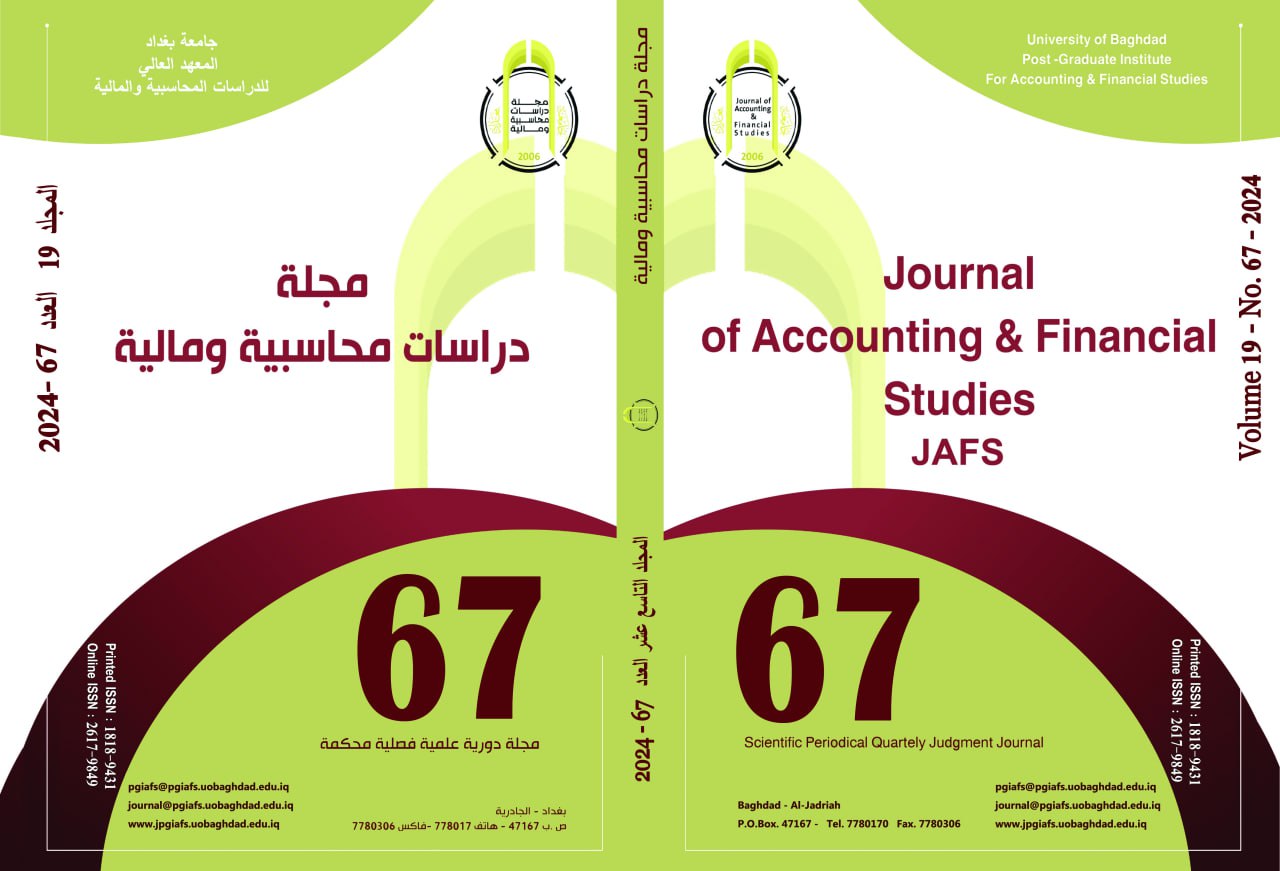Assessing the Impact of Integrated Control on Item Budgeting Performance
A Case Study of the Finance and Auditing Departments at Baghdad University
DOI:
https://doi.org/10.34093/7t7zy878الكلمات المفتاحية:
Item budgeting approach، Integrated control، Performanceالملخص
Abstract
This study examines the efficacy of item budgeting at the University of Baghdad by investigating the impact of integrated control systems on the efficiency and effectiveness of item budgeting within organizational departments. Using a sample size of 60, the research employs multiple regression analysis to explore elements such as vertical and horizontal integration, diagnostic and interactive uses of controls, and other organizational factors like technology and leadership. The findings reveal significant positive correlations among key variables, notably between 'Technology Used' and 'Leadership,' and between 'Alignment' and 'Aggregation'. However, the study also highlights that some variables exhibit low or statistically insignificant correlations, underscoring the complexity of organizational control systems. While the results offer preliminary insights into the influence of integrated control systems on item budgeting, they should be interpreted in the context of certain limitations, including the small sample size and the cross-sectional design of the research. Recommendations for future studies and practical applications are discussed, emphasizing the need for a larger sample size, longitudinal studies, and incorporating qualitative methods to provide a more comprehensive understanding
التنزيلات
منشور
إصدار
القسم
الرخصة
يتمّ نقلُ حقوق النّشر إلى المجلّة عند إخطار الباحث بقَبول بحثه المقدّم للنّشر في المجلّة.





